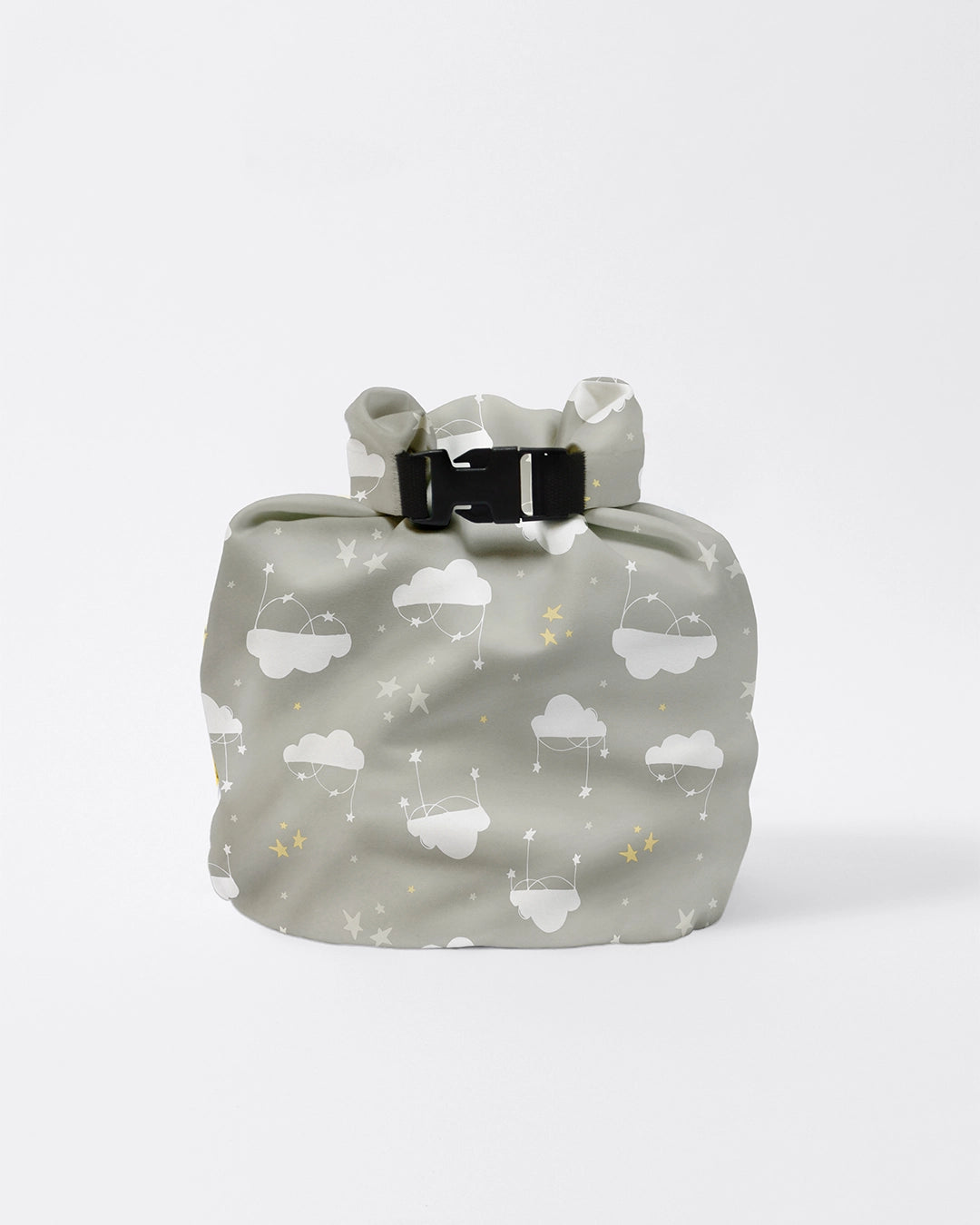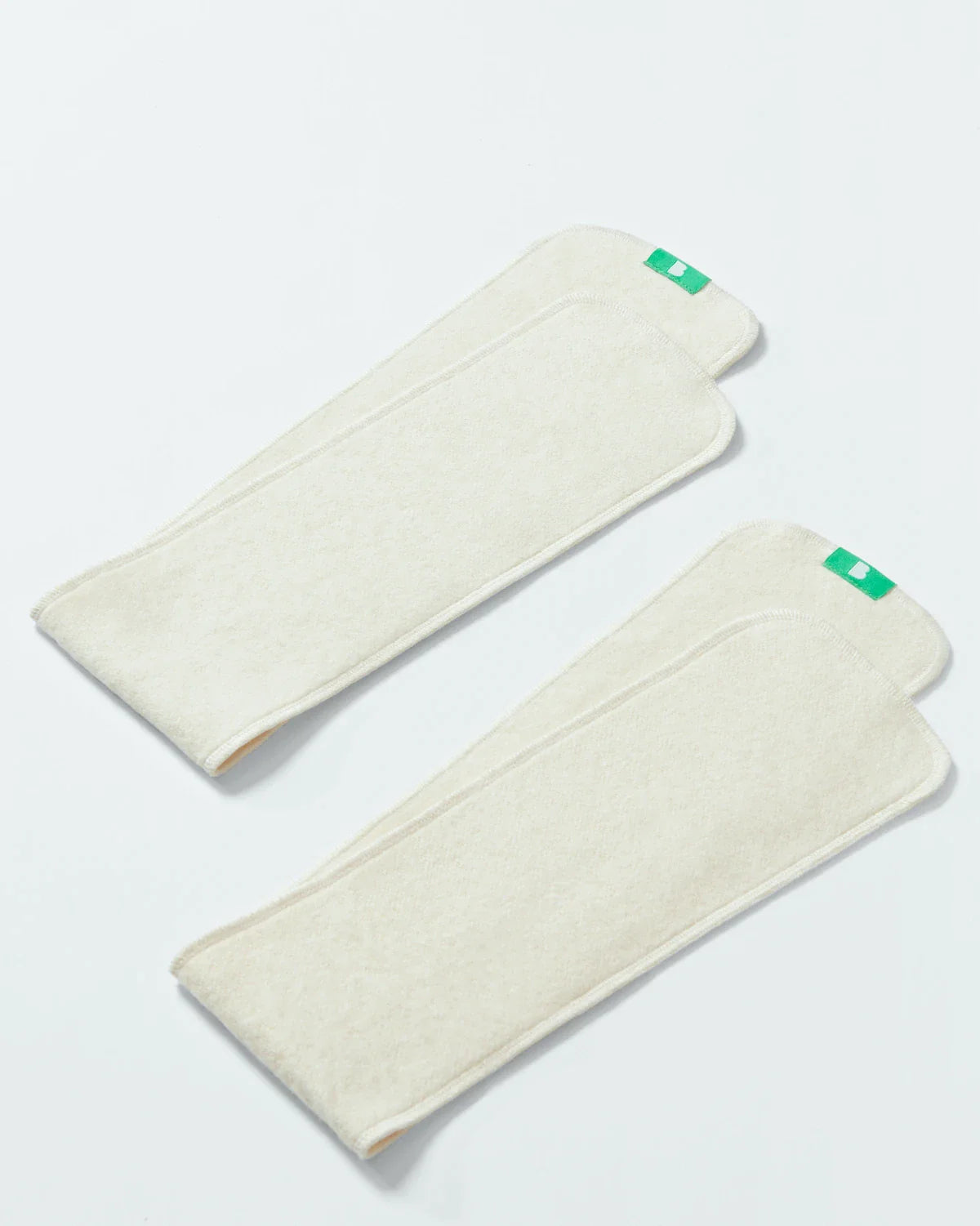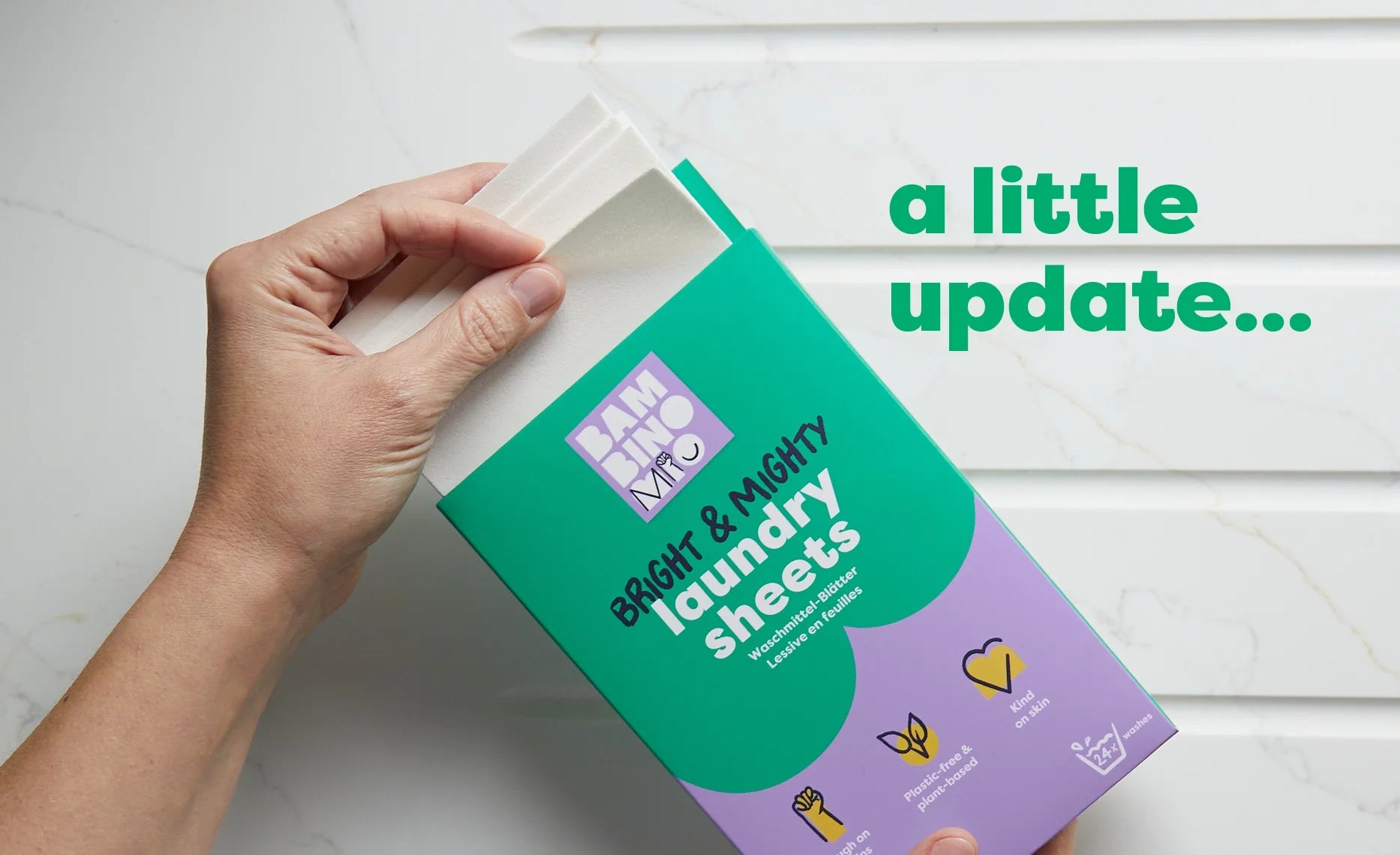Week 17 of Pregnancy | How Big is Your Baby at 17 Weeks?
Share Options
- Bambino Mio
- 20 / 07 / 2023

Inside this Article:
- At 17 weeks your baby is the size of a pomegranate!
- Baby’s laying down fat
- There’s some muscle and bone growing, too
- The umbilical cord and placenta are growing, too
- How you’re feeling at 17 weeks pregnant
- Pelvic and lower back pain
- Your stuffy nose
- Staying healthy at 17 weeks pregnant
- If you have back and pelvic pain
- Exercising while pregnant
- Things to think about at 17 weeks of pregnancy
- Citations and References
Pregnancy is a time of huge change for you, your body and your life. Our guide will help you through this amazing time, letting you know what to expect at each stage and, most excitingly, what your baby is up to each week.
At 17 weeks your baby is the size of a pomegranate!
At 17 weeks of pregnancy, your baby is around the size of a pomegranate! In old money, this means they’re around 13.5cm (5.25in) from crown to rump and 19.6cm (7.75in) from crown to heel.
Your little baby also weighs around 170g (6oz) at 17 weeks, which is the same weight as the average sweet potato.
Baby’s laying down fat
Your baby is starting to deposit adipose – or fat – tissue around now (1). The first fat cells develop in your baby’s face, neck, stomach wall and breast before more is laid down in their back, arms, legs, shoulders and chest. This body fat performs a lot of vital functions, including insulating their little body, storing energy, helping to protect vital organs and, of course, adding some gorgeous chunkiness to their features.
There’s some muscle and bone growing, too
There’s some serious bulking up going on from this week, with your baby growing muscle and bone as well as fat (2). By the end of next week (week 18 of pregnancy), your baby will weigh around 210g (7.1oz).
The umbilical cord and placenta are growing, too
Your umbilical cord and placenta are also growing (3). The umbilical cord is becoming thicker and longer so it can send more nourishment to your baby as their demands grow and your placenta is increasing its number of blood vessels to keep pace.
How you’re feeling at 17 weeks pregnant
You’re comfortably into your second trimester of pregnancy now and speaking of comfort, you’re probably feeling less sick and tired by now. There may be some common pregnancy symptoms such as heartburn and headaches, as well as a blocked nose and some aches and pains in your back and joints.
Pelvic and lower back pain
Around two thirds of pregnant women experience some lower back pain (4) and around 20% of pregnant women have pelvic pain (5). These pregnancy symptoms are caused mainly by the growing uterus, stretching muscles and by the pregnancy hormone relaxin softening ligaments (6).
Your stuffy nose
A pregnancy symptom you might not have expected is a stuffy nose. Usually showing up in the second trimester, it’s thought that pregnancy rhinitis (7) is due to the increase in blood volume making your nasal passages swell up. Up to 40% of pregnant women find they develop a stuffy nose in the middle of pregnancy.
Staying healthy at 17 weeks pregnant
As your pregnancy nausea has probably subsided, you should make the most of your increased appetite to fill up on lots of nutritious foods (8). Make sure you include calcium-rich (9) and iron-rich (10) foods in your diet during your second trimester for your baby’s bones, teeth and blood cells.
Getting some exercise each day (11) is still important as it’ll help you to stay mobile and reduce pregnancy annoyances like constipation, low moods or energy and even stuffiness.
If you’re suffering from pregnancy rhinitis, then there are a few things you can do to reduce it:
- Sleep with your head and neck propped up to reduce the amount of swelling in your nose and sinuses
- Use a humidifier in your house to moisten the air
- Avoid strong perfumes, cigarette smoke and other potential irritants as much as possible
- Use saline drops for temporary relief from the blocked feeling
If your stuffiness is really bad, your GP might be able to prescribe some mild antihistamines to reduce your discomfort.
If you have back and pelvic pain
Back and pelvic pain are two of the most well-known pregnancy discomforts and while they can get worse as your pregnancy progresses, you can reduce their impact:
- Get some daily exercise to strengthen your muscles
- Try to avoid standing for long periods
- Use a back and belly support belt
- Avoid high heels and choose flat, supportive shoes instead
Exercising while pregnant
It is largely safe to exercise during pregnancy, especially if you were very active beforehand. If you’re looking to increase your fitness while you’re pregnant, then you need to choose gentler forms of exercise that are safe for you and your baby, including:
- Stretching and prenatal yoga
- Swimming
- Walking
- Antenatal aerobics
- Walking
It’s always important to stay well hydrated during exercise, but when you’re pregnant this is even more important, as you don’t want to feel dizzy or faint.
Things to think about at 17 weeks of pregnancy
If you haven’t started doing pelvic floor exercises (12) already, make a start this week. If you are already doing them, keep it up as you’re doing great!
You’re almost halfway through your pregnancy, so it might be a good time to start looking at your childcare options. You might be planning a year of maternity leave, but knowing you have great childcare in place can be a real weight off your mind.
As your uterus gets bigger, you should try to sleep on your side to avoid squashing your vena cava (13), the large vein which returns blood to your heart, by lying on your back. A pregnancy pillow can help you to get comfortable on your side.
A belly belt can really help you to reduce or avoid pelvic and back pain, as well as make you feel lighter and more, well, supported. There are a few other aids to help you with the various discomforts that later pregnancy can bring (14).
Citations and References
(1) National Institutes of Health (NIH). National Library of Medicine. ‘Newer Insights Into Fetal Growth and Body Composition.’ 2021. Web. www.ncbi.nlm.nih.gov/pmc/articles/PMC8339915
(2) National Institutes of Health (NIH). National Library of Medicine. ‘Body Composition During Fetal Development and Infancy Through the Age of 5 Years.’ 2015. Web. www.ncbi.nlm.nih.gov/pmc/articles/PMC4680980
(3) Frontiers in Physiology. ‘Development of the Human Placenta and Fetal Heart: Synergic or Independent?’ 2018. Web. www.frontiersin.org/articles/10.3389/fphys.2018.00373/full
(4) National Health Service (NHS). ‘Common Symptoms in Pregnancy. Back Pain in Pregnancy.’ 2021. Web. www.nhs.uk/pregnancy/related-conditions/common-symptoms/back-pain
(5) National Health Service (NHS). ‘Common Symptoms in Pregnancy. Pelvic Pain in Pregnancy.’ 2022. Web. www.nhs.uk/pregnancy/related-conditions/common-symptoms/pelvic-pain
(6) Cleveland Clinic. ‘Body Systems and Organs. Relaxin.’ 2022. Web. my.clevelandclinic.org/health/body/24305-relaxin
(7) Healthline. ‘Natural Ways to Clear Up Rhinitis of Pregnancy.’ 2016. Web. www.healthline.com/health/pregnancy/rhinitis
(8) National Health Service (NHS). ‘Keeping Well in Pregnancy. Eating Well in Pregnancy.’ 2023. Web. www.nhs.uk/pregnancy/keeping-well/have-a-healthy-diet
(9) National Health Service (NHS). ‘Vitamins and Minerals. Calcium.’ 2020. Web.
www.nhs.uk/conditions/vitamins-and-minerals/calcium
(10) National Health Service (NHS). ‘Vitamins and Minerals. Iron.’ 2020. Web. www.nhs.uk/conditions/vitamins-and-minerals/iron
(11) National Health Service (NHS). Keeping Well in Pregnancy: Exercise in Pregnancy.’ 2023. Web. www.nhs.uk/pregnancy/keeping-well/exercise
(12) National Health Service (NHS). ‘Women’s Health. What Are Pelvic Floor Exercises?’ 2020. Web. www.nhs.uk/common-health-questions/womens-health/what-are-pelvic-floor-Exercises
(13) National Institutes of Health (NIH). National Library of Medicine. Back to Basics: Avoiding the Supine Position in Pregnancy.’ 2017. Web. www.ncbi.nlm.nih.gov/pmc/articles/PMC5309362
(14) National Health Service (NHS). ‘Therapeutic Aids for Pregnancy.’ 2023. Web. www.southtees.nhs.uk/resources/therapeutic-aids-for-pregnancy
Pregnancy by Week, What to Expect







































